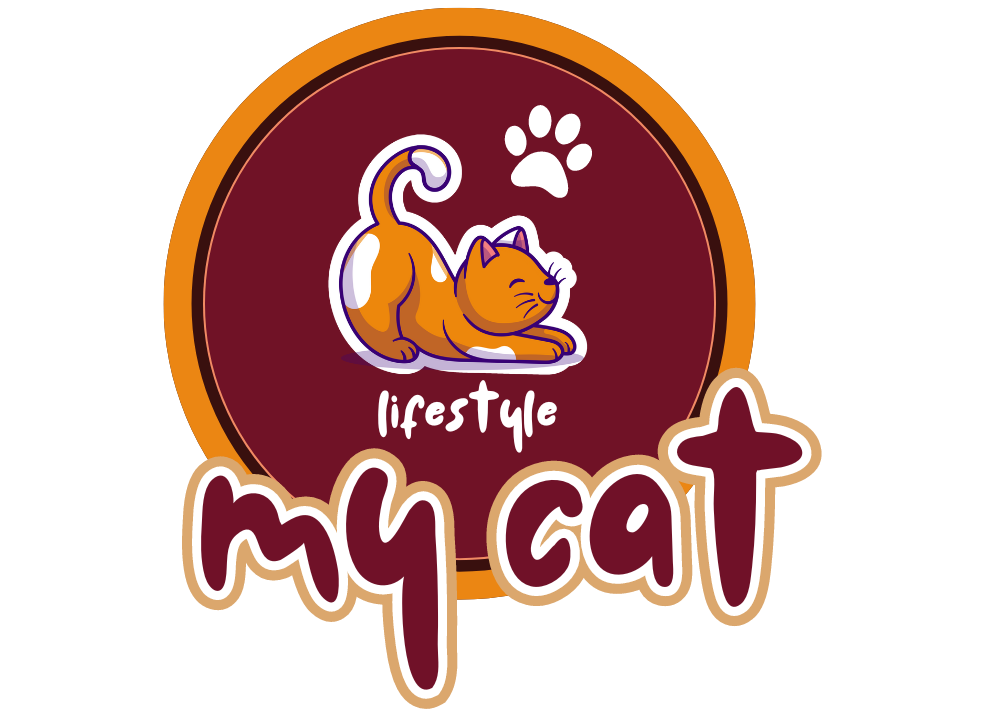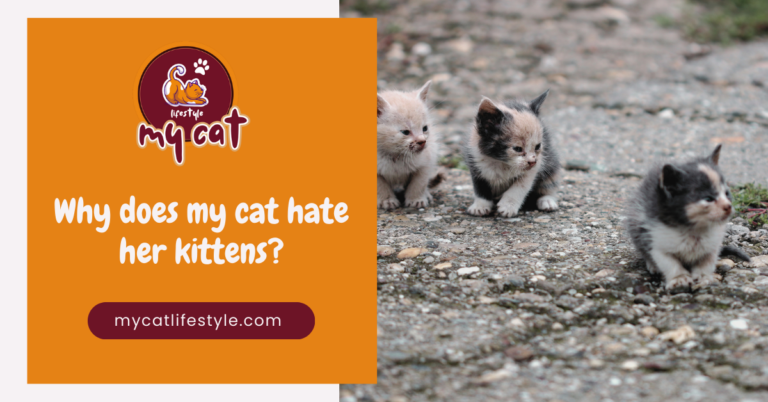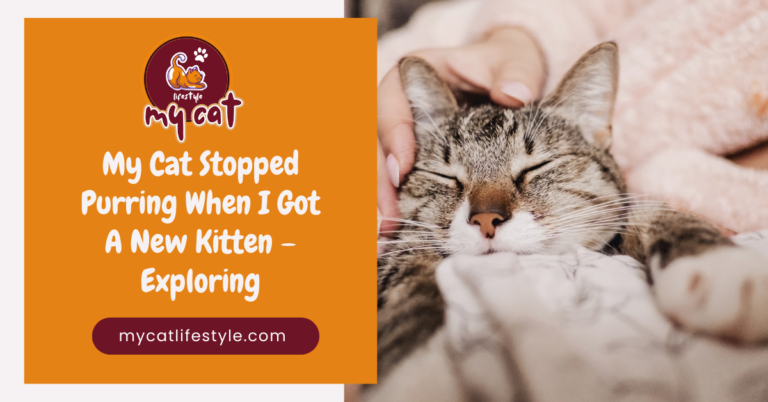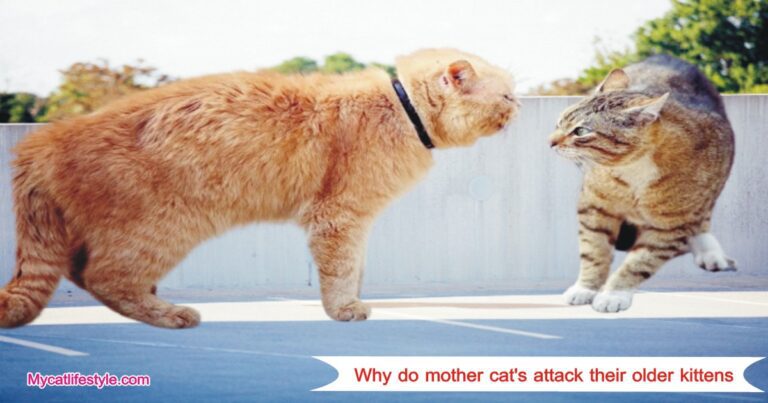Why Does My Cat’s Nose Drip When He Purrs?
Have you ever cuddled your cat while purring and suddenly put its moist, slimy nose on your associate or hand? When it occurs once, it may appear to be an unintentional event. However, if the feline’s nose drops or is persistently damp while it produces a loud purring sound, you should be concerned. Why are cats’ noses Drip when they purr?
Have you ever found a sticky nose while purring your cat? Normally it happens and it is no more than a random coincidence. But if your cat’s nose continues to drip or get wet when it purrs hard, then you will become cautious about it.
However, you may be unaware of the underlying causes of your cat’s nose leaking when purring. So, in this piece, I am here to explore this fascinating behavior and delve into the reasons why do cat’s noses get wet when they purr.

Understanding the Phenomenon why is my cat’s nose dripping water?
Before we engage into the reasons why your cat’s nose might be dripping when they purr, it is essential to understand that this is typically a normal and harmless occurrence. Cats, with their unique combination of physiological and behavioral traits, often display quirky behaviors.
Let’s start with the basics.
Purring: The Melodic Expression of Contentment or A Symbol of Contentment
Purring is a defining feature of our feline friends. It is commonly associated with contentment, relaxation, and happiness. But did you know that it is not just communication?
Purring is a complex process that involves rhythmic muscle contractions in a cat’s larynx, resulting in that soothing sound we all want to hear.
The Cat’s Nose: A Remarkable Organ
Now, let us talk about your cat’s extraordinary nose. It is more than just a cute little feature on their face. A cat’s nose is an extremely sensitive and versatile sensory organ.

It allows them to detect scents at low concentrations, helping them explore and understand their environment with precision. Additionally, a cat’s nose plays a role in thermoregulation, helping them control heat during warm weather.
With this knowledge in mind, let’s unravel the fascinating reasons behind your cat’s nose dripping during moments of purring.
The Various Reasons Why Cats’ Noses Get Wet When They Purr
1. Purring Can Trigger Sweaty Noses
Cats have sweat glands on their nose pads, which are hairless areas. These glands have multiple purposes beyond our expectations. While they are responsible for maintaining a slightly damp nose under normal circumstances, they do more than that.

Purring, in addition, called a sign of contentment, is also a physical process that activates these sweat glands. As a result, your cat’s nose can become even damper, and in some cases, this excessive dampness can lead to water dripping from your cat’s nose.
Commentary: Think of it as your cat’s natural way of regulating their body temperature and expressing their joy simultaneously.
2. A Walk Down Memory Lane to Kittenhood
Kittens, as you may have observed, tend to have runnier noses compared to adult cats. During their early weeks of life, it is quite common for kittens to have runny noses.

The most fascinating part is that mother cats often play a role in keeping their kittens’ noses clean by licking them. This might sound unpleasant to us, but this maternal choice has other purposes. It stimulates the kittens to urinate and helps keep them clean.
As kittens grow and mature, their noses tend to become less runny. However, some cats retain this trait during adulthood. For these cats, having a slightly runny nose can be a comfort response, a memoir of the safety and happiness they felt during their time with their mother. This dripping often occurs when they purr or engage in kneading behaviors.
Commentary: It is due to a connection to the strong maternal bonds; kittens share with their mothers.
3. Drooling A Sign of Pure Joy
Have you ever noticed that some cats are natural droolers? This tendency can also extend to their noses, leading to a drippy nose when they purr.
The reasons behind this drooling can vary and provide fascinating insights into your cat’s emotional state.
- Pleasure Response: In some cases, when cats are exceptionally content and relaxed, their bodies respond with increased salivation. This salivation can extend to the nose, resulting in a runny nose as they purr with joy.
- Anticipation of Meals: If your cat starts drooling when they hear the can opener or see their favorite treat bag, it is a clear sign of their excitement for mealtime. This anticipation and joy can lead to increased salivation and, subsequently, a runny nose.
- Genetic Predisposition: Some cats are simply more prone to drooling, and this tendency can be a part of their genetic scene. If you have noticed that your cat has always been a drooler, it is just part of their unique personality.
Commentary: Drooling and nose dripping are as unique as your cat’s personality and can provide a valuable study of their emotional state.
4. Emotional Responses
Cats, as we all know, have a wide range of emotions. Some cats are naturally more expressive than others and experience elevated emotions when they purr. This can be exhibited by their wet nose, especially when your cat is feeling more content and relaxed.
For example, your cat might become emotional and affectionate when you return home after a long day. Their purring and the subsequent nose dripping might be an expression of their intense joy.
Commentary: It is their way of saying, “I am thrilled to see you!”
5. Temperature and Humidity
Changes in temperature and humidity can also play a role in your cat’s nose becoming wet when they purr. Cats are sensitive to environmental factors, and these factors can impact the moisture levels in a cat’s nose.
Imagine your cat, nestled down in their favorite cozy spot, purring. If your home is particularly warm or humid, their nose might get damp during the purring time.
Commentary: Cats are adaptable creatures, and environmental factors can influence their physiology.
6. Allergies and Irritants
Like humans, cats also experience allergies to various substances in their environment. These allergies can cause nasal congestion and increased nasal secretions, resulting in a drippy nose when they purr. Common allergens for cats include pollen, dust mites, and certain foods.

Additionally, cats can inhale irritants, such as smoke or strong odors, which may lead to increased nasal secretions.
Commentary: Keep an eye on potential irritants in your cat’s environment and consider potential allergens when evaluating their runny nose.
Frequently Asked Questions( FAQs)
Is a Runny Nose a Sign of Poor Health?
A runny nose in a cat is not always a cause for concern. In many cases, it is entirely normal. However, it might signal allergies, infections, or irritants. Pay attention to other symptoms and consult your vet if needed.
How Should I Treat a Cat’s Runny Nose?
Normally, a runny nose will resolve itself. You can gently clean your cat’s nose and stained fur with a cotton ball dipped in saline solution or warm water. It is essential to avoid inserting objects into your cat’s nose.
When Should I Go to the Vet?
If your cat’s runny nose is persistent or accompanied by other symptoms like redness, swelling, frequent sneezing, unusual discharge, or signs of pain, consulting your vet is advisable.
Why Does My Cat’s Nose Drip When He Purrs?
A cat’s nose may drip when purring due to sweat gland activation on the nose, reflecting contentment and temperature regulation. It can also be linked to emotional states and genetics.
Can a Runny Nose in Cats Be Due to Allergies or Infections?
Yes, a runny nose in cats can result from allergies or infections. Persistent symptoms or additional concerning signs should prompt a vet visit for proper diagnosis and treatment.
How Can I Safely Clean My Cat’s Nose if It’s Runny?
To clean a cat’s runny nose safely, use a damp cotton ball with saline solution or warm water. Avoid inserting objects into the nose, and if the issue persists, consult a vet.
When Should I Consult a Vet About My Cat’s Runny Nose?
Consult a vet if your cat’s runny nose is persistent, accompanied by symptoms like redness, sneezing, or behavioral changes, to determine the cause and appropriate treatment.
Final Thougths
There are various reasons why your cat’s nose starts to bleed when purring. The most common cause of this is excessive sweating, which stimulates sweat glands. When this happens, just wipe your felines’ noses with a clean cloth and continue hugging them. if your cat’s nose drips when they purr, it is typically a sign of their happiness and contentment. Whether it is due to sweat glands, nostalgia for kitten hood, or genetic predisposition, it is a distinctive feature like their unique traits. Embrace your cat’s uniqueness and take comfort in knowing that their slightly wet-nosed purring is a sign of their well-being and joy.
Read Related Post: Why Does My Cat’s Nose Change Color?



